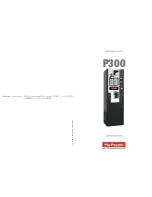
Patriot Twin Analyst – Owner’s Manual – Owner’s Manual – Revision 1.1
Page
3
Hard water is probably the single largest threat facing the American home in the 21st century. Hard water can
coat your family, your home and your appliances with thousands of pounds of inorganic mineral rock-scale
each and every year; hard water slowly destroys everything it touches. Left untreated, hard water costs you
money, ruins your lifestyle and can even lower the value of your home.
No one needs to tell you that you're living with Hard Water though. Soap doesn't lather easily, glasses are
cloudy after washing, a ring forms around the bathtub, faucets and shower heads are crusty, laundering results
are poor and there are many other easily recognized signs.
There are several degrees of water hardness. Even moderately hard water, can seriously damage the plumbing
system in your home and, in time, cause inconvenient and expensive problems.
Hard water is a poor cleaner because it is loaded with a variety of impurities. These dissolved impurities react
with certain chemicals found in soap to form a gummy, insoluble curd.
This soap curd clings stubbornly to everything it touches. The ring around your bathtub is curd. That same curd
causes your hair to become dull and hard to manage.
Soap curd clogs skin pores and prevents your natural oils from moisturizing your skin. This dryness causes itch-
ing and also aggravates skin conditions like psoriasis, eczema and acne.
Soap curd is especially noticeable by the scummy film it forms on dishes, glassware, walls and floors. Hardness
and other dissolved solids combine to form the residue you see as spots on glasses, crockery, cutlery and shower
enclosures.




































